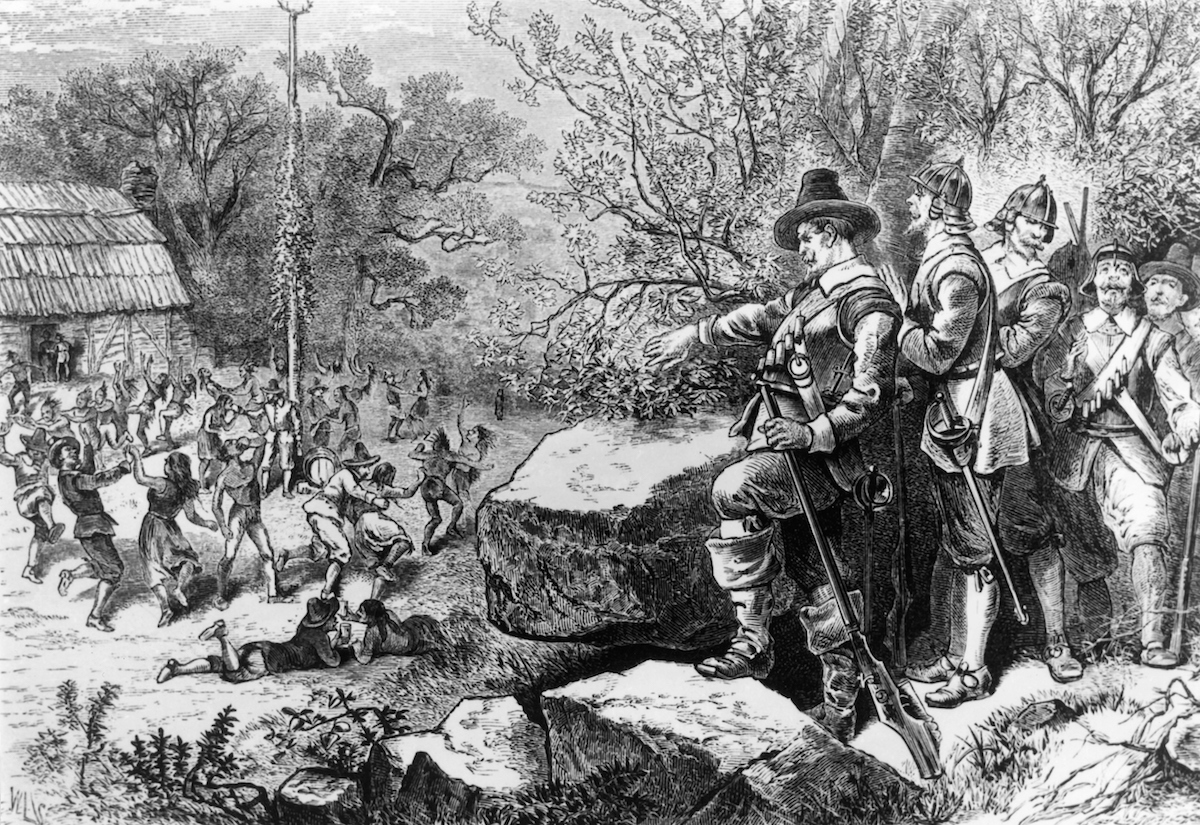26 New English Canaan (1624)

Thomas Morton (1579-1647) was an English lawyer and social reformer. After visiting Plymouth colony in 1622, he returned to England and organized a new colony, Merrymount, which was established in 1624 in what is now Quincy, Massachusetts. After the new colony celebrated Mayday in 1628, a Puritan militia led by Miles Standish attacked the colony and arrested Morton. Returning to England, Morton published a book denouncing the Puritans in 1637. In it he described the natives he encountered in a different light than the Plymouth colonists.
A savage who had lived in my house before he had taken a wife, by whom he had children, made this request to me, knowing that I always used him with much more respect than others: that I would let his son be brought up in my not-savage house, that he might be taught to read in that book [the Bible]. Which request of his I granted and he was a very joyful man to think that his son would thereby become an Englishman and then he would be a good man. I asked him who was a good man? His answer was that he would not lie nor steal. These, with them, are all the capital crimes that can be imagined; all other are nothing in respect of those.
I must needs commend them in this particular, that though they buy many commodities of our Nation, yet they keep but few, and those of special use. They love not to be cumbered with many utensils, and although every proprietor knows his own, yet all things (for long as they will last) are used in common amongst them. A biscuit cake given to one, that one breaks it equally into as many parts as there be persons in his company and distributes it. Plato’s Commonwealth is for much practiced by these people. According to humane reason, guided only by the light of nature, these people lead the more happy and freer life, being void of care which torments the minds of many Christians. They are not delighted in baubles but care in useful things.
I have observed that they will not be troubled with superfluous commodities. Such things as they find they are taught by necessity to make use of, they will make choice of and seek to purchase with industry. So that, in respect that their life is so void of care and they are so loving also that they make use of those things they enjoy (the wife only excepted) as common goods and are therein so compassionate that, rather than one could starve through want, they would starve all. Thus do they pass away the time merrily. They may be rather accustomed to live richly, wanting nothing that is needful, and to be commended for leading a contented life.
But the Plimmoth men, intending no good to him (as appeared by the consequence) came in the meantime to Wessaguscus [Weymouth] and there pretended to feast the Savages; bringing with them pork and things for the purpose. They ate thereof without suspicion of any mischief, who were taken upon a watchword given and with their own knives by the Plimmoth planters slaughtered. In the meantime the Sachem had knowledge of this act by one that ran to his Countrymen at the Massachusetts, and gave them intelligence of the news.
The Savages of the Massachusetts could not imagine from whence these men should come or to what end, seeing them perform such unexpected actions. Neither could tell by what name properly to distinguish them and did from that time afterwards call the English Planters Wotawquenange, which in their language signifies stabbers or cutthroats. And this name was received by those that came thereafter for good, being then unacquainted with the signification of it, for many years following.
Source: Open Anthology of Earlier American Literature, Chapter 31, https://pressbooks.pub/openamlit/chapter/new-english-canaan-excerpt/
